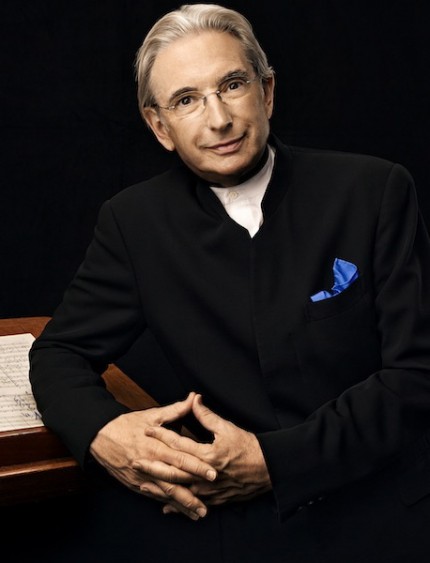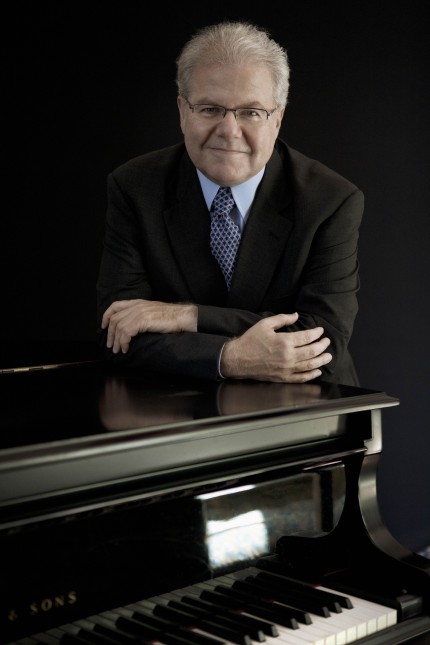Tilson Thomas, CSO soar with Sibelius Second Symphony

Mahler, Stravinsky, Tchaikovsky, Aaron Copland. These are the composers one most readily associates with Michael Tilson Thomas. Yet like all first-tier podium artists, the conductor can offer equally rewarding performances of an array of far-flung repertory.
Such was the case this week with Tilson Thomas returning to lead the Chicago Symphony Orchestra in Sibelius’s Symphony No. 2. And the majestic performance he delivered with the CSO Thursday night helped to make up for the orchestra’s ignoring the Finnish composer’s 150th birthday anniversary last year.
Few composers have as distinctive a sonic profile as Sibelius and Tilson Thomas’s firmly concentrated performance was especially successful in bringing out the individuality and sheer strangeness of his scoring. Those elements —cool woodwind skirls, scurrying strings over rumbling basses, melancholy wind solos, and jagged horn fragments abruptly snapped off like frozen branches—were all richly manifest and boldly projected, conveying the austere and compelling Northern atmosphere of this music.
The conductor has the full measure of this score, bringing a highly focused momentum to the extended first movement. The brooding expression and nostalgic ache of the Andante was deftly contrasted with the ensuing gaunt craggy outburst of anxiety.
The nervous energy of the third movement led inevitably into the finale with its stark brass statements. The conductor’s skillfully charted the progress of the broadly arching main theme through to its soaring, majestic coda, while giving the various episodes along the way fully characterized attention as well.
There were some passing ensemble lapses Thursday but on the whole the orchestra played at their usual high level, particularly clarinetist Stephen Williamson and timpanist David Herbert (who came to Chicago from Tilson Thomas’s San Francisco Symphony).
With this week’s performances of Beethoven’s Piano Concerto No. 4 Emanuel Ax is marking the 40th anniversary of his CSO debut.
The veteran pianist is perhaps best known for his Chopin and Mozart, yet Beethoven has always taken up a great deal of his interest. Ax is the soloist in Tilson Thomas’s current rewarding cycle of Beethoven recordings with his San Francisco Symphony.
Yet while the symphony performances in the conductor’s ongoing Beethoven project have been consistently illuminating, I’ve found Ax’s concertos to be solid yet rather faceless, and such was the case Thursday night. Ax’s performance was largely polished, interpretively tasteful and just a little bit dull.
Rarely has the Fourth Concerto felt more Classical in profile. Ax adopted an almost Mozartian take on the music, underplaying attacks and softening dynamic contrasts. Likewise, MTT’s even-tempered accompaniment kept the drama’s masculine-feminine duality in scale. What the performance lacked was a touch of interpretive individuality and idiosyncrasy.
The soloist’s poised phrases in the Andante were limpid and soothing. Tilson Thomas avoided the hoary tradition of overplaying the gruff string statements that the pianist gradually quells; rather they felt more like a fluent conversation than Fafner entering from his lair.
Though not the last word in charm or wit, the performance was at its best in the Rondo finale, with Ax’s quicksilver articulation and close partnership with Tilson Thomas, providing the requisite payoff.
The audience clearly has no qualms, most leaping to an immediate standing ovation. After several curtain calls, Ax provided an encore with a refined account of “Des Abends” from Schumann’s Fantasiestücke.
The evening began with Stravinsky’s Scherzo a la russe. Tilson Thomas is justly celebrated as a Stravinskian, and he led a fleet, jaunty rendition of this quirky four-minute gem with firm rhythmic snap and bass-end ballast. The conductor added his own theatrical coup d’archet to the abrupt final note by instantly whirling around to face the audience and having the musicians simultaneously jump to their feet.
The program will be repeated 1:30 p.m. Friday and 8 p.m. Saturday. cso.org; 312-294-3000.
Posted in Performances





